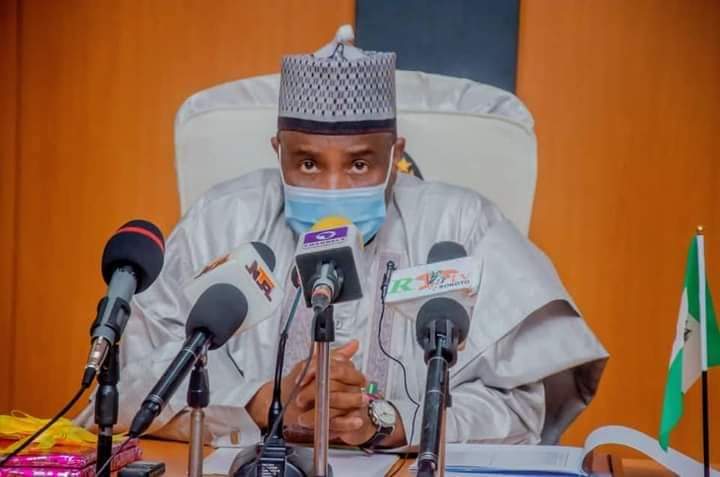… Urges FG, NASS To Review Salary Package
By Muhammad Goronyo, Sokoto
For thirteen years running the Judiciary arm of government in Nigeria has been subsisting on a salary package that is not realistic thus making it susceptible to the vagaries of market forces and challenges of professional propriety.
This was why Governor Aminu Waziri Tambuwal of Sokoto state appealed to the Federal government, the National Assembly (NASS) and the National Judiciary Council (NJC) to set up a Judiciary Intervention Fund (JIF) to cater for the judicatory.
Àcording to the governors’ media aide Tambuwal made the call on Monday when the House of Representatives committee on Judiciary visited him in his office in Sokoto.
According to him, “it is worrisome that the salary package of the Justices have not been reviewed in the last 13 years.
“This is not good enough. We have reviewed the salaries… I suppose the idea of an intervention fund to the Judiciary … even if it is not made by way of a law, there should be an injunction to that effect… to revamp and turn around courts as well as provide for the welfare of the Judiciary staff,” he said.
Observing that lots of courts are dilapidated, a situation which drove his administration to renovate the state High Court, he pledged that Sokoto state government will [also] intervene institutionally in the rehabilitation of the residences of Appeal Court Justices in the state capital “to make things better for them.”
He indicated that these interventions will encourage the Judiciary“to continue to dispense and discharge justice to the people of the state.
He said such moves will equally make the Judiciary independent and functional as the last hope of the common man and some “big men in and out of politics.”
He further said: “There are challenges in this country, one of which is about the Judiciary. We need to do more to grant autonomy to the Judiciary and state legislatures. We need to act our words. I was very touched about the living conditions of the Appeal Court Justices in Sokoto.
He commended the NASS for allowing the electronic transmission of election results and advised the parliament to review the issue of direct and indirect primaries.
“I don’t know whether the NASS takes into consideration the cumbersome nature of direct primaries, the cost implications, the requirements for INEC considering the number of political parties, “ he noted, asking if to do the needful in the interest of democracy, equity and good governance.

Leave a Reply